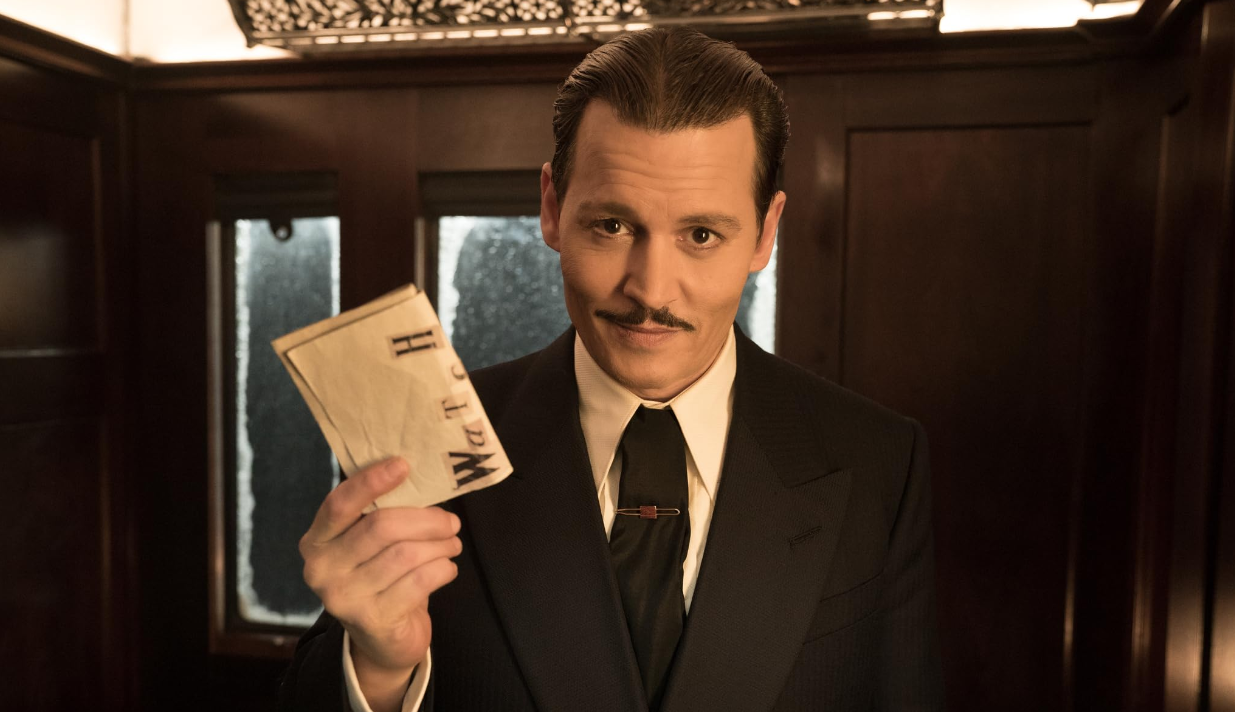By: Alex Tilton
In 1974 director Sidney Lumet released the film version of the famous Agatha Christie novel, Murder on the Orient Express. It won an Academy Award (Ingrid Bergman) and got nominated for five more. Everything about it is good. One of the best things about it are the visuals, probably because this was 1974 and if you wanted a scene with your characters in Istanbul you had to actually go there. So, the movie is full of real locations, authentic period costumes, and actors who understand the kind of movie they’re in. An old-time murder mystery story isn’t terribly realistic. They’re meant to be fun, and the audience enjoys trying to figure out who did it as the story moves along. The 1974 version understands this, embraces it, and does the best job I’ve ever seen hitting the right tone. Albert Finney plays detective Hercule Poirot so well it’s hard to imagine anyone else doing it.
If you haven’t seen it, the plot follows fictional Belgian detective Hercule Poirot as he investigates the murder of a gangster named Cassetti aboard a train that becomes trapped in a snowdrift. He interviews the suspects one by one and as the information accumulates he makes his conclusions, and the audience gets to feel smart if they guess correctly. It’s a wonderful film.
The 2017 version on the other hand…ugh. Spoilers ahead.
Kenneth Branaugh is a deservedly famous Shakespearean actor. He’s done everything there is to do in film and stage, and he’s great at it. He’s also a famous director. On top of that he’s got an amazing cast of famous names. Yet, somehow, the movie sucks.
I’ll start with the surface level complaints. I hate CGI (computer-generated imagery) and this movie is lousy with it. It’s also not very good. I felt like I was watching a mid-budget animated film half the time. I also didn’t like the costumes. They weren’t awful, just not what you expect from a big budget film like this. It looked more like a video game set in the 1930s rather than real people in the actual 1930s.
The big problem though is the tone. Branaugh wanted his version to be darker and more serious. That’s fine. A remake shouldn’t be a clone of the original. But this story about (a murder investigation on a snowbound train) has no business containing an action sequence, let alone two of them, neither of which change the outcome of the story. In the first of these, one of the suspects decides to flee from Poirot after he discovers some incriminating evidence. The problem with this is, as mentioned before, the train is trapped in a snowdrift. There’s nowhere for this man to go, so the scene has no tension. The movie redeems itself a little bit by having a good explanation for this attempted escape, but that doesn’t make it any more exciting when you know he’s not going to get away.
A second action scene involves one of the suspects shooting and wounding Poirot in an attempt to protect another suspect from getting blamed for the murder. But since the shooter is a former British army sniper, all this does is convince Poirot that he must’ve missed on purpose, and therefore the shooting actually proves that his confession is false. Generally, instead of putting together a puzzle, I’m having blunt, obvious conclusions violently shoved at me.
The ending is also a blunt-force emotional eruption, rather than the slightly (but not really) ambiguous ending of the original. Nobody confesses in the original version, even though it’s clear that all 12 suspects are guilty. Poirot gives his friend, the director of the train company, a choice. He can give the police one of two theories; Cassetti was killed in a mafia vendetta by a mysterious unknown assassin, or the (obviously) correct theory that the passengers were all in on it. He knows the truth but he refrains from pushing the issue, because in his opinion letting them get away with it is closer to justice than hanging them all for killing a gangster that destroyed their lives.
In Branaugh’s version the organizer of the revenge murder confesses emphatically, and begs him to pin it all on her so the others can get on with their lives. And I scratched my head at this because if he’s willing to lie to the police about who did it, then why wouldn’t he just let them all go? Either way he’s complicit in a coverup. Is this supposed to be 1/12th more honest than the full lie?
I did like one thing about Branaugh’s ending though. In his version, when Poirot confronts the twelve murder suspects he knows to be guilty, he brings a gun with him. In the original ending it struck me as a little silly that Poirot is standing in a room with 12 people that he knows are murderers, and he’s just kind of fine with that. No trace of worry about what they might do when confronted. Because of course he isn’t, it’s not that kind of movie.
Image Source: IMDb.com

